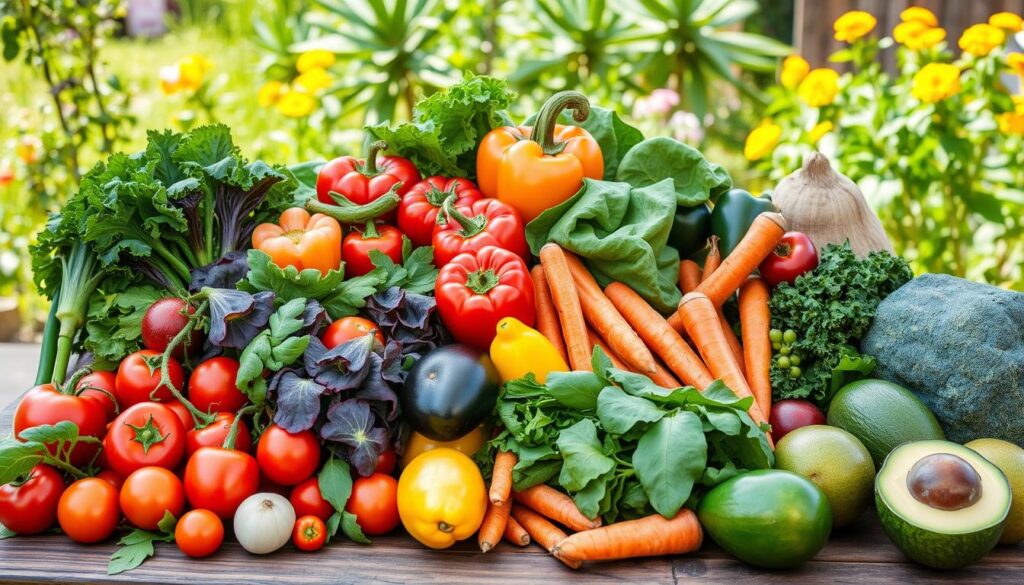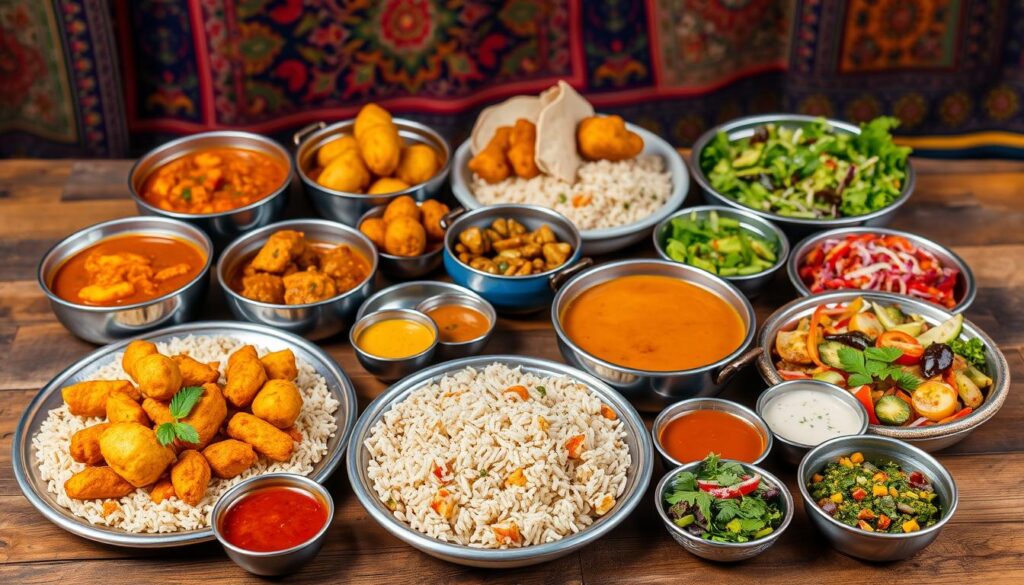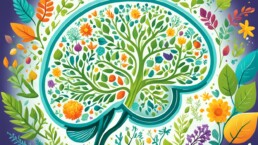Thinking about ditching meat and embracing a plant-based lifestyle? You’re not alone! More and more people are exploring the world of vegan and vegetarian diets, drawn by the potential health benefits, ethical considerations, and environmental impact. But with so much information out there, it can be confusing to know where to start. What is the difference between vegan and vegetarian anyway? Is one healthier than the other? And how do you even make the switch?
Table of Contents
ToggleThis comprehensive guide dives deep into the world of plant-based eating, breaking down the core principles of vegan and vegetarian diets, comparing their nutritional profiles (think protein, B12, and iron!), and exploring the cultural landscape of plant-based eating, particularly in India. We’ll also tackle the potential challenges and, most importantly, help you discover which path aligns best with your values, goals, and lifestyle. Whether you’re curious about cutting back on meat, already a seasoned vegetarian, or considering going fully vegan, this article is your go-to resource for navigating the exciting world of plant-powered living. Get ready to explore delicious recipes, practical tips, and the inspiring stories of others who have embraced this way of life. Let’s embark on this plant-based journey together!
The Basic Principles of Vegan and Vegetarian Diets
Exploring plant-based eating is exciting. It’s key to know the basics of vegan and vegetarian diets. A vegetarian diet is good for your health. A vegan lifestyle helps animals and the planet too.
There are different types of vegetarian diets. You can choose lacto-ovo, lacto, or ovo-vegetarian. Veganism goes beyond food. It’s a way to live without harming animals and to help the environment. Vegans often have lower cholesterol and heart disease risk.

Switching to vegan or vegetarian needs careful thought. Lacto-ovo vegetarians eat dairy and eggs. Vegans must plan to get enough protein from plants. Luckily, there are many plant-based foods now, like those from Tata Simply Better.
Key vegan and vegetarian diet principles are:
- Avoid animal products like meat and fish
- Eat plant-based proteins like beans and tofu
- Choose whole foods for better nutrition
By following these principles, you can make better food choices. This leads to a kinder and greener way of living.
Nutritional Comparison Between Vegan vs. Vegetarian Diets
When you think about eating plants, it’s key to know the difference between vegan and vegetarian diets. Both have good points, but they differ in protein, vitamins, and minerals.
Looking at protein, vegetarians get it from dairy and eggs. Vegans get it from plants like beans, nuts, and seeds.

Protein Sources and Requirements
Protein is very important. Both vegan and vegetarian diets can give enough protein if you plan well. But, vegetarians might get more protein because of dairy and eggs.
Essential Vitamins and Minerals
Vitamin B12 and iron are key nutrients that might be low in plant diets. Iron is hard for vegans to get because the body doesn’t absorb it well from plants. Vitamin B12 is mainly in animal products, so vegans might need supplements or special foods.
To stay healthy, knowing about iron and vitamin B12 is important. This helps you make good choices for your diet and life.
Food Choices and Restrictions
Exploring vegan and vegetarian diets is important. Knowing the food choices and restrictions is key. Your diet affects your health and wellbeing.
Plant-based options are a big part of these diets. There are different types of vegetarian diets. Some include dairy and eggs, while others don’t.
When picking food, think about:
- Plant-based sources of protein, such as legumes and whole grains
- Essential vitamins and minerals, like vitamin B12 and iron
- Healthy fats, including omega-3 fatty acids
Companies like Tata Consumer Products make new plant-based products. Tata Simply Better offers healthy and easy options. These can help you meet your nutritional needs.
Your diet choices are personal. They should match your values and health goals. Learning about different diets and options helps you make good choices. This way, you can live a healthy and balanced life.
Living Plant-Based in India: Cultural Perspectives
Exploring a plant-based lifestyle in India shows how important Indian food is. India has a long history of vegetarianism. This mix of old and new ways of eating plants is unique.
Many Indians choose to eat plants because of their beliefs. Jainism and some Hindu groups have supported vegetarianism for a long time.
A report from Shondaland says India’s plant-based food market is growing fast. This is because more people want food that is good for the planet and their health. Veganism is getting more popular, especially in cities.

- Traditional Indian vegetarian cuisine, which offers a wide range of delicious and nutritious options
- Modern vegan adaptations of Indian dishes, which are becoming increasingly popular in urban areas
- Social and family considerations, such as the importance of community and cultural heritage in shaping food choices
When thinking about a plant-based lifestyle in India, knowing about food culture is key. By exploring Indian cuisine and the values of plant-based eating, you can make choices that fit your values and goals.
Health Benefits and Potential Challenges
Thinking about a plant-based diet? It’s key to know the good and the tough parts. A good vegetarian or vegan diet can help a lot. It can lower your risk of heart disease, diabetes, and some cancers. For more info, check out the National Center for Biotechnology Information website.
Plant-based diets have many benefits. They can help lower heart disease risk, type 2 diabetes, and some cancers. They also help with weight, blood pressure, and more.
But, there are challenges too. You might miss out on some nutrients. Learn about vitamins, minerals, proteins, fats, and carbs at the Dr. Gooddeed website. To beat these, plan your diet well and talk to a health expert.
Knowing the good and the tough parts of plant-based diets helps you make smart choices. With the right planning, you can enjoy the diet’s benefits and avoid the challenges.
Making the Transition: Which Lifestyle Suits You?
Thinking about switching to a vegan or vegetarian diet? First, ask yourself why. Do you want better health, to help the planet, or to protect animals? Knowing your reasons will guide your choice.
Changing your diet can be easy. Start by skipping meat or dairy one day a week. Or, change one meal at a time. There are many online resources, like guides on balanced diets for vegetarians and vegans.
Assessment Questions to Consider
- What are your dietary goals and preferences?
- How will you ensure you get enough protein, vitamins, and minerals?
- What are some practical steps you can take to transition to a vegan or vegetarian lifestyle?
Practical Steps for Transitioning
For a smooth transition, try new recipes and plant-based milks. Look for vegan-friendly restaurants too. Begin with small changes, like a plant-based meal a day. Or, try a vegan or vegetarian meal delivery service.
Conclusion: Embracing Your Plant-Based Journey
Choosing between vegan or vegetarian is a personal choice. It depends on your values, dietary needs, and lifestyle. Whether you choose a plant-based journey or a vegetarian diet, it’s all about making smart lifestyle choices.
Vegan and vegetarian diets have many benefits. They help the environment and may lower disease risks. Eating whole, unprocessed plant foods is good for your body and aligns with your values.
There’s no single right way – find what works for you. With a bit of planning and trying new things, you can add more plant-based foods to your life. This way, you can enjoy the good changes that come with your new diet.
FAQ
What is the difference between a vegan and a vegetarian diet?
Vegetarians don’t eat meat, poultry, or seafood. They might eat dairy and eggs. Vegans don’t eat anything from animals, including meat, dairy, and eggs.
What are the different types of vegetarian diets?
There are a few types of vegetarian diets. Lacto-ovo vegetarians don’t eat meat but do eat dairy and eggs. Lacto-vegetarians don’t eat eggs but do eat dairy. Ovo-vegetarians don’t eat dairy but do eat eggs.
What are the core philosophical differences between vegan and vegetarian diets?
Vegans don’t eat anything from animals. They also don’t use animals for anything. Vegetarians might eat some animal products.
What are the key nutritional considerations for vegan and vegetarian diets?
Both diets need careful planning to get enough protein, vitamins, and minerals. You might need supplements to stay healthy.
What are the common food choices and restrictions in vegan and vegetarian diets?
Vegans don’t eat anything from animals. Vegetarians can eat dairy and eggs but not meat. Both diets focus on plants like fruits, veggies, and grains.
How do traditional Indian vegetarian cuisine and modern vegan adaptations compare?
India has lots of vegetarian dishes. Modern vegan versions keep the same flavors and cultural feel but are animal-free.
What are the potential health benefits and challenges associated with vegan and vegetarian diets?
These diets can lower disease risk and help with heart health. But, they might lack some nutrients. Good planning and supplements can help.
How can I make the transition to a vegan or vegetarian lifestyle?
Start by checking if you’re ready. Set goals and make a plan that fits you. You might need to make small changes and get support.
Source Links

This article is medically reviewed by Dr. Chandril Chugh, Board-Certified Neurologist, providing expert insights and reliable health information.
Dr. Chandril Chugh is a U.S.-trained neurologist with over a decade of experience. Known for his compassionate care, he specializes in treating neurological conditions such as migraines, epilepsy, and Parkinson’s disease. Dr. Chugh is highly regarded for his patient-centered approach and dedication to providing personalized care.








